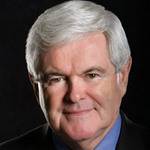So far I have been skeptical about how much of a role social media buzz has been playing in the presidential primaries, particularly when it comes to “predicting” winners. But of the three primaries to date, Saturday’s race in South Carolina may have been the one that was most influenced by Twitter.

Traditional polls still did a better job of predicting the outcome of Saturday’s South Carolina primary, but a backwards look at Twitter may show why and how Newt Gingrich scored such a decisive, 12-point victory over national front runner Mitt Romney. And in some regards, social media was able to tell a story in South Carolina that polls could not.
The chart compares analysis of social media versus traditional polling in predicting the results for the four major candidates in Saturday’s South Carolina Republican presidential primary.

Public Policy Polling did a much better job than social media analytics by GlobalPoint in predicting the actual results of Saturday’s results, in large part because Ron Paul’s votes have yet to catch up with his social media mentions. To its credit, though, Global point saw Gingrich with 31 percent of the vote to Romney’s 19 percent, while the traditional poll was prediciting a much tighter, six-point race.
What social media did do better than traditional polls, however, is show how Gingrich’s support surged followed Thursday night’s debate. That night could have been a toss-up for Gingrich: while pundits said Gingrich held his own and Romney may have lost ground, Gingrich had the added potential pitfall of an ABC News interview with his ex-wife that night.
Twitter almost instantly showed that the ABC interview was not going to be a factor, and any mentions of the interview – positive or negative – may have actually helped Gingrich by pushing negative, social media comments about his debate performance to the background.
Meanwhile, OhMyGov is reporting that Gingrich saw a surge in Facebook fans and Twitter followers in the hours that followed the debate. That followed a surge of social media activity (and a corresponding bump in the polls) for Gingrich following the first of two debates in South Carolina on Jan. 16.
The lesson thus far in the 2012 election that social media, like traditional polling, can’t accurately predict races (particularly races involving Ron Paul, it would seem). But as researchers spend more time analyzing the data, social media is showing itself as an effective tool in better understanding a presidential campaign, which amounts to a daily war of attrition for public sentiment.

















